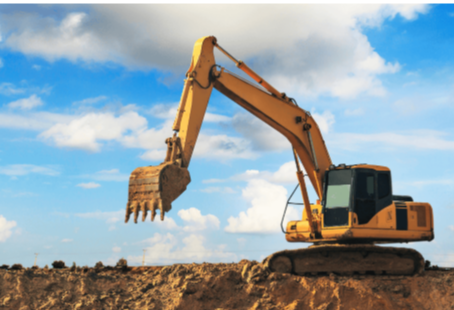Excavation Contractors: The Backbone of Successful Construction Projects

When it comes to any construction project, whether it’s a residential home, commercial building, or infrastructure development, one of the most critical first steps is site preparation. And that’s where excavation contractors play a vital role.
From clearing land and digging foundations to grading and trenching for utilities, excavation contractors lay the groundwork—literally and figuratively—for safe, efficient, and long-lasting structures.
In this in-depth guide, we’ll explore what excavation contractors do, the types of excavation services they provide, the equipment they use, how to choose the right contractor, typical costs, and important considerations for any project.
An excavation contractor is a specialized professional or company responsible for moving earth, rock, and other materials to prepare a construction site for building. Their work involves cutting, filling, trenching, grading, and ensuring that the land is ready for construction according to architectural and engineering specifications.
Unlike general contractors, excavation contractors focus on site preparation, often working closely with builders, engineers, surveyors, and utility providers to ensure the land is properly shaped and stable for what’s to come.
Key Services Provided by Excavation Contractors
Excavation contractors offer a wide range of services to support construction, landscaping, and civil engineering projects. These services may include:
1. Site Clearing
Before excavation begins, the site needs to be cleared of trees, shrubs, boulders, debris, and existing structures. Excavation contractors often handle this as part of their service.
2. Earthmoving and Grading
Once the site is clear, contractors move soil and rock to achieve the desired elevation and contour. This is critical for proper drainage, foundation support, and stability.
3. Foundation Excavation
One of the core tasks is digging trenches or holes for foundations, basements, and footings. Precision is essential to ensure structural integrity.
4. Trenching for Utilities
Excavation contractors dig trenches for electrical, plumbing, gas, and drainage systems. They ensure the correct depth and slope to comply with codes and prevent future problems.
5. Road and Driveway Preparation
Whether for access roads on large developments or residential driveways, excavation contractors grade and compact surfaces to ensure durability and proper water runoff.
6. Retaining Walls and Erosion Control
In areas with uneven terrain or slopes, excavation contractors may build retaining walls and install erosion control systems to prevent soil movement.
7. Pool and Pond Excavation
For swimming pools, water features, or ponds, excavation contractors shape and dig to precise specifications.
8. Demolition and Site Remediation
Many excavation contractors also provide demolition services, removing existing structures, contaminated soil, or debris to prepare the site for new construction.
Equipment Used by Excavation Contractors
Excavation contractors rely on a fleet of heavy machinery and specialized tools to complete their work efficiently and safely. Common equipment includes:
- Excavators: Versatile machines used for digging, lifting, and demolition.
- Bulldozers: Ideal for pushing large amounts of earth and leveling areas.
- Backhoes: Useful for smaller excavation tasks and tight spaces.
- Skid steer loaders: Compact and maneuverable for light earthmoving.
- Graders: Essential for achieving precise grading and sloping.
- Dump trucks: Transport soil, rock, and debris to and from the site.
- Compactors/rollers: Compact soil to create a firm, stable base.
The choice of equipment depends on the project’s size, site conditions, and specific excavation needs.
Why Hire a Professional Excavation Contractor?
While DIY excavation might seem tempting for small projects, the complexity and risk involved usually make hiring a professional the safer, smarter choice. Here’s why:
1. Precision and Compliance
Professional excavation contractors understand how to read site plans and work to exact specifications. They ensure the site complies with local codes, zoning laws, and environmental regulations.
2. Safety
Excavation work can be hazardous. Experienced contractors follow strict safety protocols to protect workers, surrounding properties, and the environment.
3. Efficiency
With the right equipment and expertise, excavation contractors complete projects faster and more accurately than untrained crews.
4. Problem Solving
Unexpected challenges, like hitting rock layers, groundwater, or old utilities, are common. Skilled excavation contractors know how to address these issues without jeopardizing the project.
Factors to Consider When Choosing an Excavation Contractor
Selecting the right excavation contractor is crucial for your project’s success. Here are key factors to keep in mind:
1. Experience and Expertise
Look for contractors with a proven track record in projects similar to yours. Their familiarity with local soil conditions, regulations, and challenges will be invaluable.
2. Licensing and Insurance
Ensure the contractor is properly licensed and insured. This protects you from liability in case of accidents or damage.
3. Equipment
A contractor with well-maintained, modern equipment is better equipped to handle complex tasks and avoid costly delays.
4. References and Reviews
Check references and online reviews. Reputable contractors will have satisfied clients willing to share positive feedback.
5. Pricing and Contracts
Get detailed, written quotes and contracts that outline the scope of work, timeline, costs, and payment schedule. Be wary of bids that seem unusually low—they could indicate corner-cutting or hidden costs.
Typical Costs of Excavation Services
The cost of hiring excavation contractors varies widely depending on:
- Site size and complexity
- Type of excavation required
- Soil conditions
- Access and location
- Environmental considerations (e.g., contamination, tree removal)
As a rough guide, residential excavation work might range from $80 to $200 per hour or $50 to $150 per cubic metre of material moved, depending on the specifics. Large commercial or civil projects are priced individually after site inspections and detailed planning.
Always seek multiple quotes and ensure they cover all aspects of the job—including site cleanup and waste disposal.
Challenges and Risks in Excavation
Excavation work can present several challenges:
- Unstable soil conditions that require shoring or reinforcement.
- Encountering unknown underground utilities, which can cause damage or delays.
- Weather disruptions, such as heavy rain making the site unsafe or unworkable.
- Erosion and sediment control, especially on sloped sites.
Professional excavation contractors have contingency plans and experience to manage these risks effectively.
Excavation and Environmental Responsibility
Modern excavation contractors are increasingly aware of their environmental responsibilities. Many use best practices to minimize environmental impact:
- Erosion and sediment control measures to prevent runoff.
- Dust suppression techniques during dry conditions.
- Proper disposal of contaminated materials in compliance with environmental regulations.
- Recycling of clean fill and other reusable materials.
Hiring a contractor committed to sustainability can help ensure your project meets environmental standards and avoids costly penalties.
The Importance of Excavation in Project Success
Without proper excavation and site preparation, even the best-designed structures can fail. A poorly excavated foundation may settle unevenly, leading to cracks or structural damage. Inadequate grading can result in poor drainage, flooding, or erosion. Accurate excavation ensures that:
- Foundations sit on stable ground.
- Water drains away from buildings.
- Utilities are installed at the correct depth and slope.
- Landscaping integrates smoothly with the built environment.
That’s why investing in the right excavation contractor at the outset pays dividends in the long run.
Tips for Working With an Excavation Contractor
- Communicate clearly: Share site plans, permits, and your vision early on.
- Ask for a timeline: Understand key milestones and completion dates.
- Clarify responsibilities: Know who is handling permits, inspections, and utility marking.
- Inspect progress: Visit the site regularly to check work and address any concerns promptly.
- Final Thoughts: Why Excavation Contractors Matter
Read more: Stamped Concrete Services: Transforming Outdoor Spaces with Style and Durability
Excavation contractors are more than just the people who dig holes and move dirt—they’re essential partners in ensuring the success of construction projects. Their skill, precision, and planning set the stage for everything that follows. Whether you’re building a new home, installing a pool, or developing a commercial property, choosing a reliable, experienced excavation contractor is one of the most important decisions you’ll make.
With the right contractor on board, you can be confident that your project will start on solid ground—literally.





